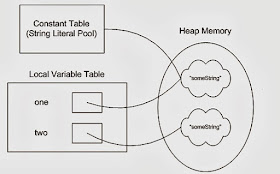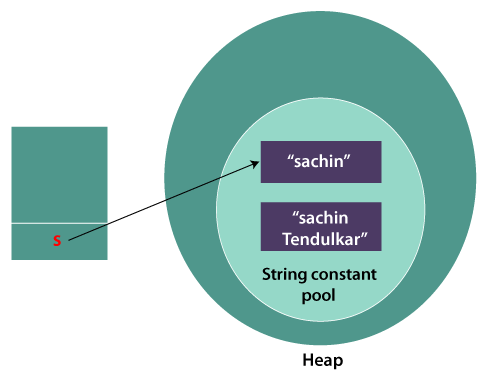The Development of Unalterable String Handling: An Important Element of Software Program Growth
In the complex world of software development, the handling of immutable strings stands as a cornerstone that has actually undergone substantial advancement over time. From its modest origins to the facility tests experienced in very early applications, the trip of immutable string adjustment has been an essential element of software program design. As we navigate through the historic landscape of this basic concept, mapping the advancements, safety effects, and emerging fads, we locate ourselves at a time where the intrinsic worth of understanding this advancement becomes progressively apparent.
Origins of Immutable Strings
The concept of unalterable strings traces back to the early days of shows languages when designers sought to improve the reliability and protection of data managing devices. Immutable strings refer to strings that can not be altered after they are created. This basic principle was presented to deal with problems pertaining to data honesty and protect against unintended alterations to vital info stored as strings.

In addition, unalterable strings add to boosting the total protection of software program systems (Why are strings immutable in Java?). By protecting against unauthorized celebrations from tampering with delicate string information, unalterable strings assist mitigate the threat of information breaches and unapproved accessibility to secret information. This fundamental idea continues to play a crucial role in modern-day shows languages and stays a foundation of protected and robust software development methods
Early Difficulties and Solutions
Navigating the landscape of early software application growth posed significant difficulties in ensuring the integrity and safety of data handling mechanisms. One of the key challenges in dealing with unalterable strings was handling memory successfully. In early systems, memory appropriation and deallocation were manual processes, resulting in potential memory leaks and susceptabilities. In addition, making certain that strings remained unaltered confirmed to be complex, specifically when multiple components of the codebase required to accessibility and change information.
To resolve these obstacles, programmers started implementing information security strategies to safeguard delicate information stored in unalterable strings. File encryption helped secure data from unauthorized gain access to and control. Additionally, the intro of hashing algorithms gave a way to verify the stability of immutable strings by creating unique checksums based on their contents. These checksums permitted fast comparisons to identify if any type of modifications had taken place. By including security and hashing approaches right into the handling of unalterable strings, developers considerably enhanced the protection and dependability of information within software systems.

Improvements in String Immutability
In software program advancement, a significant advancement in the handling of unalterable strings has actually emerged via advancements in information file encryption and hashing strategies. By utilizing secure hash formulas like SHA-256 or cryptographic strategies such as AES security, developers can make sure that sensitive info stored in unalterable strings remains tamper-proof and safe. These advancements have boosted the stability and confidentiality of data within applications, specifically in markets where information security is extremely important, such as health care, cybersecurity, and financing.
Moreover, developments in string immutability have actually led the means for enhanced efficiency optimization. Unalterable strings allow for a lot more effective memory administration and caching approaches, minimizing the expenses associated with regular string manipulations (Why are strings immutable in Java?). This optimization not only enhances the overall responsiveness of software applications but likewise adds to far better scalability and resource application
Protection Effects and Finest Practices
With the structure laid by developments in string immutability, recognizing the like it safety and security effects and carrying out best practices ends up being paramount in safeguarding delicate information within software application applications. Immutable strings play a vital role in improving security by preventing unapproved alterations to data, making certain data integrity throughout the application's lifecycle. By using immutable strings, developers can minimize usual susceptabilities such as shot assaults, buffer overflows, and data tampering, which are frequently made use of by harmful actors to jeopardize systems.
To boost security additionally, finest techniques should be adhered to when managing sensitive info. This consists of encrypting information at rest and in transit, executing appropriate access controls, utilizing protected coding techniques, and routinely upgrading software program components to patch well-known susceptabilities. Furthermore, developers need to follow the principle of the very least opportunity, guaranteeing that only required authorizations are given to procedures and customers. By incorporating these protection steps and finest techniques right into software application development processes, organizations can much better shield great site their information assets and reduce the threat of safety and security breaches and information leaks.
Future Patterns in String Handling
Amidst the ever-evolving landscape of software application development, the trajectory of string handling is positioned to witness considerable developments and developments. One of the essential future trends in string handling is the raising concentrate on efficiency optimization. As software application applications continue to expand in complexity and range, the reliable handling of strings comes to be important for maintaining optimum efficiency. Developers are discovering brand-new algorithms and data structures to boost the speed and performance of string operations.
Furthermore, another fad on the horizon is the combination of expert system (AI) and artificial intelligence (ML) in string managing tasks. AI-powered devices are being developed to automate and improve different string control procedures, leading to enhanced productivity and precision in software development operations.
In addition, there is a growing focus on improving the safety aspects of string click for more info dealing with via progressed file encryption techniques and secure coding practices. As cyber threats continue to evolve, guaranteeing the integrity and confidentiality of information within strings is coming to be a top concern for designers. By embracing durable safety procedures, such as encryption at remainder and en route, developers can mitigate the dangers linked with string control susceptabilities.
Final Thought
In final thought, the development of immutable string handling has actually been a critical facet of software program growth, starting from its beginnings to the developments made recently. Early challenges have actually been resolved through ingenious solutions, resulting in better safety techniques in dealing with strings. It is important for designers to remain updated on the most up to date fads in string immutability to ensure the effectiveness and protection of their software application applications.
Unalterable strings refer to strings that can not be altered after they are produced. Why are strings immutable in Java?. By protecting against unapproved events from meddling with sensitive string information, unalterable strings assist alleviate the risk of data breaches and unapproved access to personal info. By including encryption and hashing methods into the handling of unalterable strings, programmers substantially enhanced the security and dependability of information within software program systems
Unalterable strings enable for more effective memory monitoring and caching approaches, reducing the expenses linked with frequent string adjustments. Immutable strings play an essential duty in boosting safety by preventing unapproved adjustments to data, ensuring information integrity throughout the application's lifecycle.